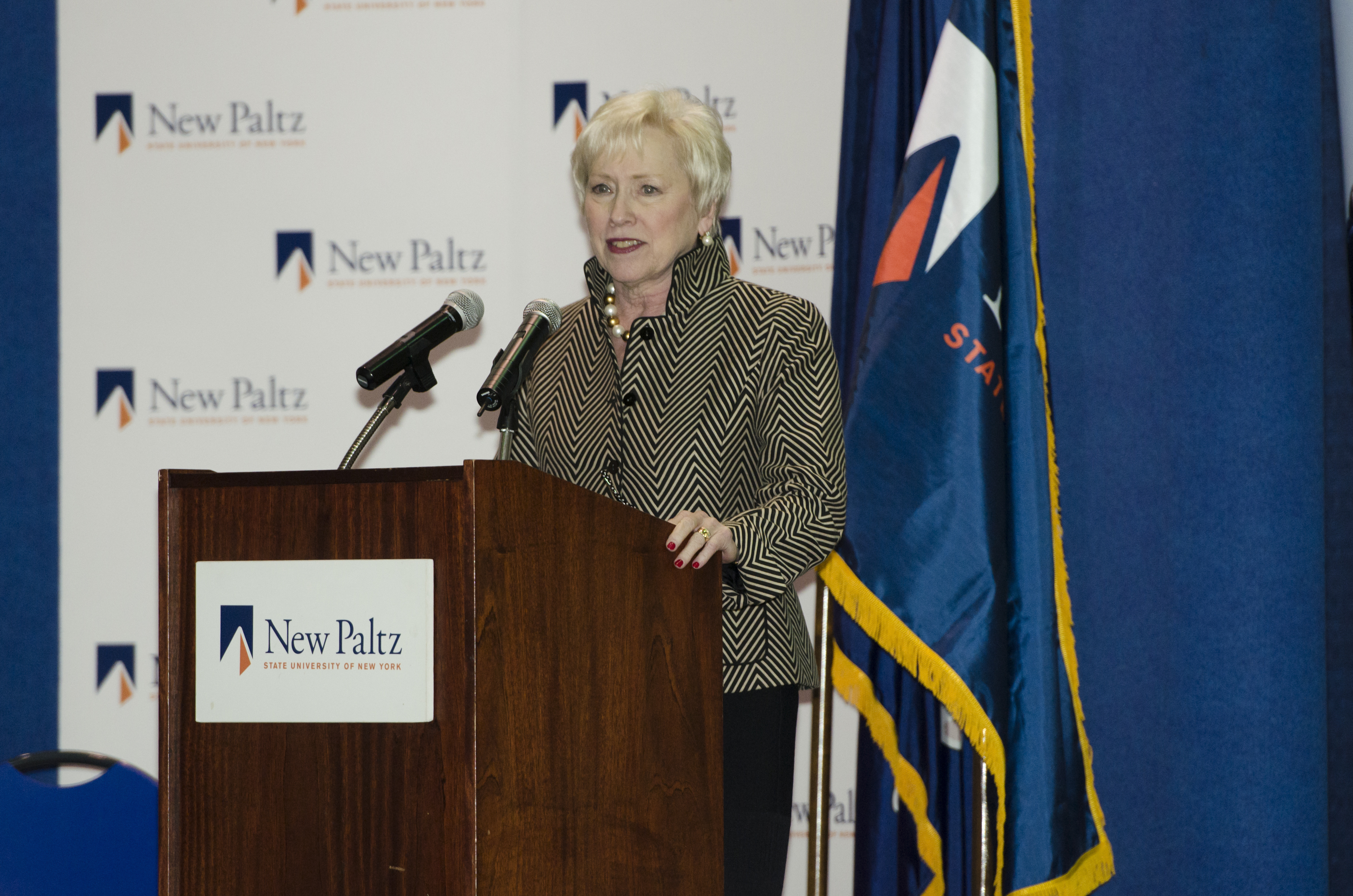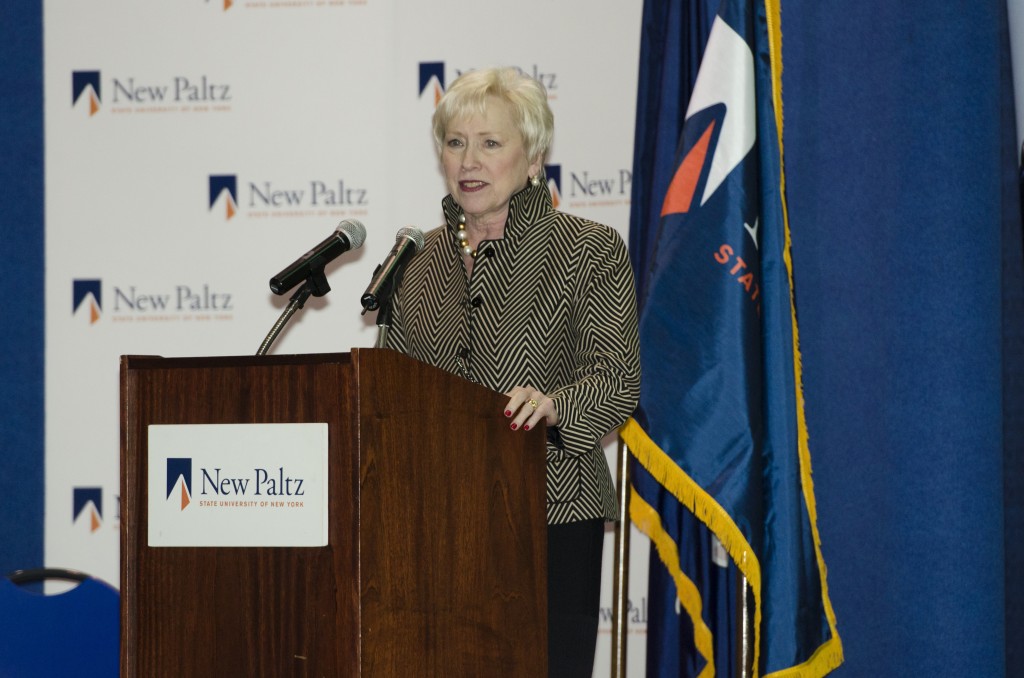

Seventy-three percent of SUNY New Paltz students graduate within six years — third best of any SUNY school after Cornell New York State Colleges and Binghamton University, according to a recent Times Union article that cited SUNY central administration figures tracked from 2006 to 2012.
SUNY — the largest public university system in the country — graduated 64 percent of students in the last six years, which trumped the national average of 55.5 percent, according to 2009 data from the National Center for Higher Education Management Systems.
Despite above average numbers for SUNY, rates fluctuated throughout the system’s 64 campuses. The Binghamton, New Paltz, Geneseo and Alfred campuses graduated at least 70 percent of students between 2006 and 2012, while the Canton, Old Westbury, Maritime and Farmingdale sites were all at less than 45 percent.
According to Vice President of Enrollment David Eaton, New Paltz’s location and extensive major options help to make the school a popular, and ultimately selective destination.
Additionally, “good graduation rates are an extension of good retention rates,” Eaton said.
Eaton also said academically motivated students won’t stay at a school that isn’t challenging. Those at New Paltz have “a desire to learn a lot about a lot,” Eaton said, “an enlightened characteristic of students here.”
New Paltz has continued to increase its access to courses that students need by spreading out classes through the evening and made use of every day of the week to best avoid scheduling conflicts, according to Eaton.
Expanded access to classes Eaton called “high demand courses,” often lower division classes that fulfill a general education requirement, have become available online during summer and winter sessions.
With an increase in high demand courses, there has been a decrease in remedial education — classes whose material should have been taught to students while they were in high school. Remedial education classes are only given as “support to students who are English language learners or who have special needs,” Interim Dean of Liberal Arts and Sciences Stella Deen said.
Expanded online learning and diminished remedial teaching were central in SUNY Chancellor Nancy Zimpher’s State of the University Address in January, where she emphasized raising graduation rates and reducing the time to completion.
“We need a comprehensive plan to get more students into college, graduating on time and graduating ready for successful careers,” Zimpher said at her State of the Univeristy Address.
In that speech, Zimpher outlined her goals for the SUNY system:
Expanded access
Increased completion
Assured life and career success
She also mentioned several other “high profile calls to increase the number of college graduates in this country,” which included President Obama’s College Completion Goal — his plan to graduate an additional 8 to 10 million students by 2020.
The President’s plan is for increased funding based on how well each college performs on a rating system that will be finished before the start of the 2015 school year. The criteria for the rating is as follows:
Access, percentage of students receiving Pell grants
Affordability, average tuition, scholarships and loan debt
Graduate earnings, advanced degrees of college graduates
At New Paltz, Eaton said that he recognizes many undergraduates pursue multiple majors and minors in varied fields. He sees this eclectic education as an advantage for an era where a person is “likely to change professions three to four times.”
“To participate in meaningful things in work and society, you need a broader knowledge base than you did 40 years ago,” Eaton said.
But despite the merits of undertaking that knowledge, according to Eaton, there are costs: additional years in school to complete requirements and a loss of income by not being in the job market.
“Acquiring knowledge irrespective of economic benefits has to be considered a good thing, but in reality, we all need jobs,” Eaton said.
Eaton said he measures the success of college with both a degree that proves course study and an education that provides self confidence, interconnectedness, a love of learning, leadership skills and the ability to listen.
